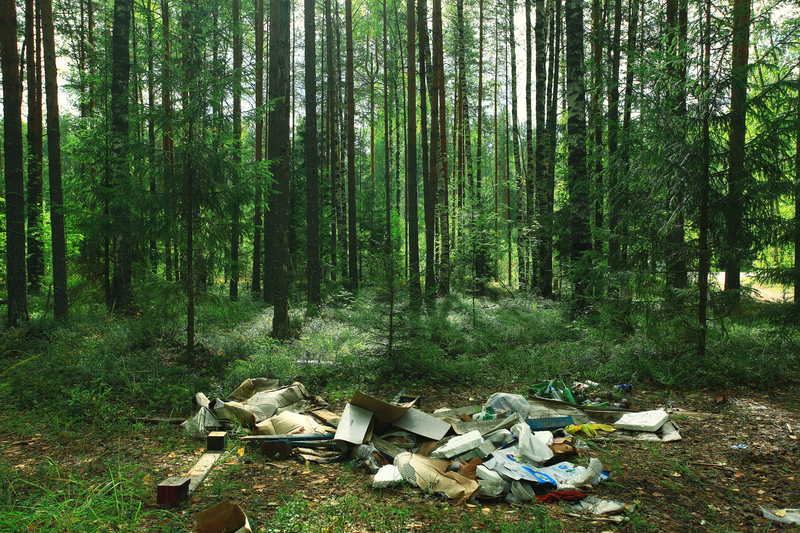Bulk Waste Budget Wins: How to Save on Big Disposals
Disposing of bulk waste can be a costly and logistically challenging process. Whether you're clearing out a home, managing debris from a renovation, or getting rid of large office or industrial refuse, the fees add up quickly if you're not strategic. If you want bulk waste disposal solutions that are both environmentally responsible and easy on your wallet, you've come to the right place. This comprehensive guide breaks down the secrets to saving money on large waste disposals while ensuring efficiency and compliance with local regulations.

Understanding Bulk Waste and Why It Costs More
Bulk waste refers to items too large to fit in standard trash bins. These include mattresses, old appliances, furniture, construction debris, yard waste, and more. The high volume and heavy materials require specialized handling, making bulk waste disposal often more expensive than regular garbage pickup.
Why Are Bulk Waste Services So Pricey?
- Increased labor and transportation costs
- Special equipment (like trucks with lift gates or cranes) required
- Landfill and recycling facility fees
- Strict regulations for certain items (like electronics or hazardous waste)
Identifying cost drivers helps you target areas where you can save, ensuring your bulk disposal budget is used wisely.
Smart Strategies for Saving on Bulk Waste Disposals
Let's dive into innovative approaches to reduce your bulk waste disposal costs -- and sometimes even turn your trash into treasure.
1. Plan Ahead: The Early Bird Gets the Discount
Don't wait until the last minute! Advanced planning is your best weapon against overpriced disposal fees and rush charges.
- Book bulk waste collection in advance to secure affordable rates.
- Coordinate with local collection days to avoid off-schedule fees.
- Ask your waste company about discounts for scheduled pickups versus emergency services.
2. Sort and Segregate for Savings
Bulk waste disposal is easier and often cheaper when you separate items by type:
- Metal (old appliances, pipes): Some scrap yards pay you for metal items!
- Yard Waste: Many towns offer free or low-cost composting days.
- Hazardous Items (batteries, paints, electronics): These usually require special handling, but proper separation avoids hefty fines.
- Donate or recycle items in good condition before tossing them in the bulk pile.
3. Compare Bulk Waste Removal Services
Not all disposal companies charge the same. Use online tools to compare prices, services, and reviews.
- Check if your municipality offers subsidized or included bulk waste removal for residents.
- Request quotes from multiple junk removal services and negotiate.
- Look for package deals or recurring customer discounts for ongoing needs.
4. Consider Bulk Waste Drop-Off vs. Collection
Bringing items to a landfill or recycling center yourself is often less expensive than pickup.
- Some facilities have free days for specific types of waste.
- Group with neighbors or nearby businesses to share transportation costs.
- Make sure to check local ordinances for drop-off requirements.
5. Leverage Community Resources
Many cities and towns offer community bulk trash days or special events for spring cleaning and large disposals.
- Check your local government's website for bulk waste events and scheduled pickups.
- Neighborhood associations might organize group clean outs for lower rates.
- See if your HOA or property manager has negotiated special disposal services.
6. Rent the Right Size Dumpster
Overspending on dumpster rentals is a common mistake. Estimate the correct dumpster size for your project:
- Speak with the rental company for advice--oversized dumpsters cost more upfront and in disposal fees.
- Choose a size just large enough for your waste load to maximize savings.
- Don't forget weight limits: Exceeding them can result in steep overage charges.
7. Maximize Recycling and Donation Opportunities
Before you pay for disposal, ask: Can this item be reused, repurposed, or recycled?
- Nonprofits, shelters, and thrift stores often accept gently used furniture and building materials.
- Electronics recycling programs (sometimes free) help dispose of old gadgets responsibly.
- Websites like Freecycle and Facebook Marketplace connect your "bulk waste" to new owners -- for free!
Best Practices for Lowering Bulk Disposal Expenses
Bundle and Schedule for Efficiency
- Consolidate items so you only pay for one haul.
- Time your disposal with move-outs, renovations, or seasonal cleanings.
- Ask about combined rates for disposing of different types of bulk waste in one trip.
Know Local Laws and Avoid Penalties
Ignorance isn't bliss when it comes to bulk waste disposal regulations. Research your municipality's rules to avoid steep fines:
- Some localities require permits for large-scale disposals or restrict what you can place curbside.
- Improper disposal of electronics, mattresses, or hazardous items can result in citations.
- Failure to comply may mean paying for cleanup and additional charges.
DIY Bulk Waste Removal: When to Consider It
Hauling your own waste can be the most affordable bulk disposal option--if you have the time, vehicle, and manpower.
- Rent or borrow a truck for a short period instead of hiring a removal service.
- Split transport costs with neighbors doing similar cleanouts.
- Make multiple trips on free disposal days at your local transfer station.
Negotiate With Landlords or Building Management
If you live or work in a managed property, see if your bulk waste removal can be included as part of your rent or condo fees.
- Large complexes often have established relationships with haulers and lower negotiated rates.
- Request group pickups or special bins during move-out season for additional savings.
Be Aware of Hidden Charges
Many factors can unexpectedly inflate your quoted price. Watch out for:
- Overweight fees on dumpsters or trucks.
- Charges for prohibited items (like tires, Freon appliances, certain plastics).
- Extra labor if workers must break down or sort items on site.
- Weekend or after-hours surcharges.
Eco-Friendly Bulk Waste Solutions
Saving money and saving the planet go hand in hand. Green disposal methods can lower costs and support sustainability.
- Recycle all eligible items -- glass, electronics, metal, and some plastics.
- Choose haulers committed to responsible disposal and recycling, reducing landfill fees.
- Compost green waste: Many municipalities collect yard clippings and organic debris free or at lower rates.
- Look for nonprofit partnerships or upcycling programs to give old furniture or building materials a second life.
Partner with Local Scrap Yards and Recyclers
Some recyclers pay for metals, usable electronics, or large quantities of cardboard. This can offset your disposal costs and support local industry.
Case Study: Real Savings on Large Scale Disposal
Consider a family cleaning out a four-bedroom home after downsizing. They faced a mountain of bulk waste -- furniture, appliances, boxes of books, and decades of accumulated "junk." By applying the strategies above, they saved hundreds of dollars.
- Donated gently used items to charity (reducing landfill fees and earning a tax deduction).
- Recycled old appliances and earned scrap metal payouts.
- Booked a community bulk pickup day instead of paying for a private haul.
- Coordinated with neighbors to share dumpster rental costs.
Result: Over $600 savings compared to paying for individual disposal services!

FAQs: Cutting Bulk Waste Disposal Costs
Q: Can I get rid of large items for free?A: Check your city's website -- many municipalities offer limited free bulk pickups or drop-off events, especially in spring or fall. Q: How do I avoid penalties for leaving bulk waste out?
A: Only put items out on your scheduled collection day, and review your town's accepted materials list. Q: What's the most budget-friendly way to dispose of construction debris?
A: Rent a dumpster with the correct weight allowance, donate usable materials, and drop off clean fill at a facility if available. Q: Are there tax benefits for donating bulk waste?
A: Yes, donations to qualifying charities may be tax-deductible. Always get a receipt and check IRS guidelines. Q: Can businesses save on bulk waste removal, too?
A: Absolutely! Businesses can negotiate rates, participate in recycling programs, and bundle waste removal with other services for savings.
Conclusion: Win Big On Your Bulk Waste Budget
Reducing bulk waste disposal costs isn't just about finding cheap haulers -- it's about planning carefully, leveraging local resources, separating and recycling appropriately, and understanding your options. With the right strategies, you can make big disposals on a budget a reality, saving money while keeping your space clutter-free and your community green.
For even greater bulk waste savings, stay informed about upcoming community clean-up events, evaluate your options before tossing anything, and always ask about available discounts or promotions from service providers. Your waste budget (and the environment) will thank you!
- Plan ahead and schedule pickups in advance
- Sort, recycle, or donate whenever possible
- Compare prices and ask about specials
- Utilize community and local resources
- Stay eco-friendly for long-term savings
Ready to turn your next big cleanout into a Bulk Waste Budget Win? Use the strategies above to minimize costs and maximize efficiency for all your large-scale disposal needs.
